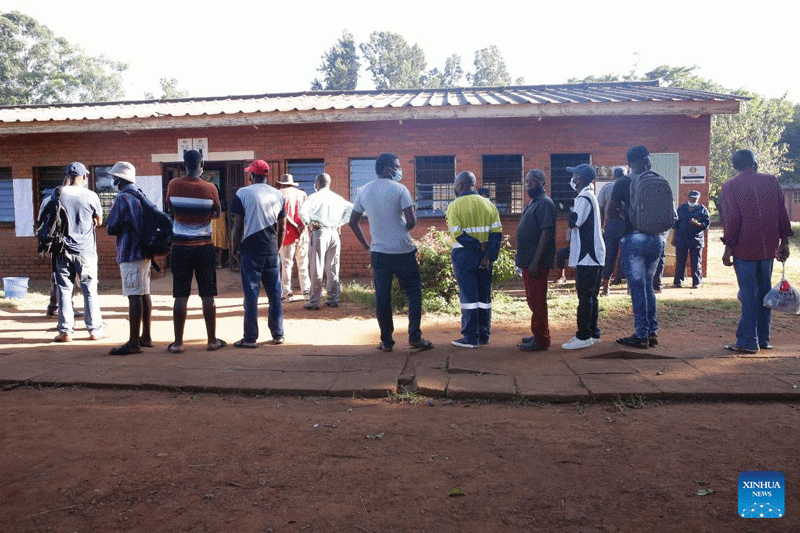
LAST week Zimbabwe Elections Support Network (Zesn) hosted a Twitter Spaces online dialogue programme that attracted over one thousand ‘followers’.
They sought an answer to one question: Are we Zimbabweans ready for elections? As expected, responses were as diverse as the political interests represented.
The ruling party Zanu PF was absent from the debate panel, for reasons only that party can explain. Zimbabwe Electoral Commission (Zec) was not invited because this event was designed only for political stakeholders and civil society.
Electoral preparedness in Zimbabwe must be more of a science than an art. It puts one through a whole cycle of structural, emotional, administrative, strategic, financial and technical value chains.
It seems to suck in everyone into the vortex of uncontrolled enthusiasm tinged with a pinch of anxiety, at worst, fear. Even when one eccentric citizen represents a contraption of a ‘political party’, we seem to embrace them with the same vigour that we accept delusional psychotic candidates whose only claim to political fame is a badly designed campaign poster.
Elections are a combination of a final examination and a wedding.
They present the same adrenalin, anxiety and carnival(ism) that befits the purpose.
They stretch one’s imagination and planning capacity to the very limit. Yet just like an Olympic sprinter, an exam or a wedding: you are either prepared or unprepared.
- ED heads for Marange
- ‘Zimbos dreading 2023 elections’
- Your Excellency, the buck stops with you
- We’ll unleash our dogs: Zanu PF
Keep Reading
Today, a week after the cacophonic melee and hullabaloo of Nomination Court, the same question is still relevant: are we ready for elections?
My friend Eddie Cross substitutes ‘ready’ with ‘progress’: “We have a diverse media and freedoms of speech and assembly, when the results are announced on the 24th of August, they will be real and verifiable – that was never the case under Mugabe.”
He concludes, “This is progress." When I decipher such comments, there is a coterie of questions that still floods my mind: does "media diversity" that is not national capture the spirit of democracy?
What access does opposition have to rural areas without intimidation? On whose side are traditional leaders? Who controls "electoral" state resources?
Why is Job Sikhala in prison when he is supposed to be campaigning?
Who forces children to attend rallies? What is the state of the voters’ roll?
Who will print ballot papers and in what quantities? Will opposition know and have access to all polling stations? What is the net effect on electoral litigation of giving judges four hundred thousand United States dollars?
It would seem our electoral terrain is dogged by the same issues time and time again. We never learn from history. Electoral democracy cannot be work-in-progress over a period of fifty years. There should come a time when we say we have stopped experimenting.
If Emmerson Mnangagwa is correct that his form of governance is a ‘new dispensation’, why do we still encounter the same electoral problems we saw in 2001?
We would have hoped by now our democracy has matured enough to rid our system of hate. There must not be any entitlement to state resources.
Every candidate, every political party must be treated with respect and dignity. It is reckless and outright primitive to keep referring to opposition as ‘sell-outs’ and puppets’.
It shows a lack of depth in understanding how to develop an effective political campaign message.
Like I have always said, Zec in principle should be a place where every candidate and political party is safe and comfortable. Of course, it is very unlikely that Zec chairperson Priscilla Chigumba will get all the resources she wants to remove the fault lines, and that too presents a new set of challenges.
If there is anyone who should be one hundred percent ready for elections, it is Zec.
Any budgetary shortfall will severely compromise our already struggling electoral democracy.
However, let me hasten to say that throwing money at a problem is not a solution, but in such big budget events, every dollar counts.
If, as Eddie Cross says, the ‘new dispensation’ can give us what the Robert Mugabe regime failed so dismally, there is no reason why we should not have fun on August 23.
One just hopes by the time we get into full campaign groove; by the time we place the final dot after polling stations, polling booths, ballot papers, voters rolls and all the electoral paraphernalia, everyone concerned will be happy.
You cannot please everyone, but I do not see why anyone would go out of their way just to complain for the sake of complaining. It is a bad habit.
Yet Zec maxim should be: Do everything so perfectly well not to give anyone any reason to complain.
For us voters, as long as we are free to listen to our candidates, travel to and from polling stations freely, find our names in the voters rolls, have access to a clean ballot paper and get the exact results of who we voted for in time — we will have a good night’s sleep come 25 August 2023.
Ngwenya is a liberal analyst based in Ruwa, Zimbabwe.






